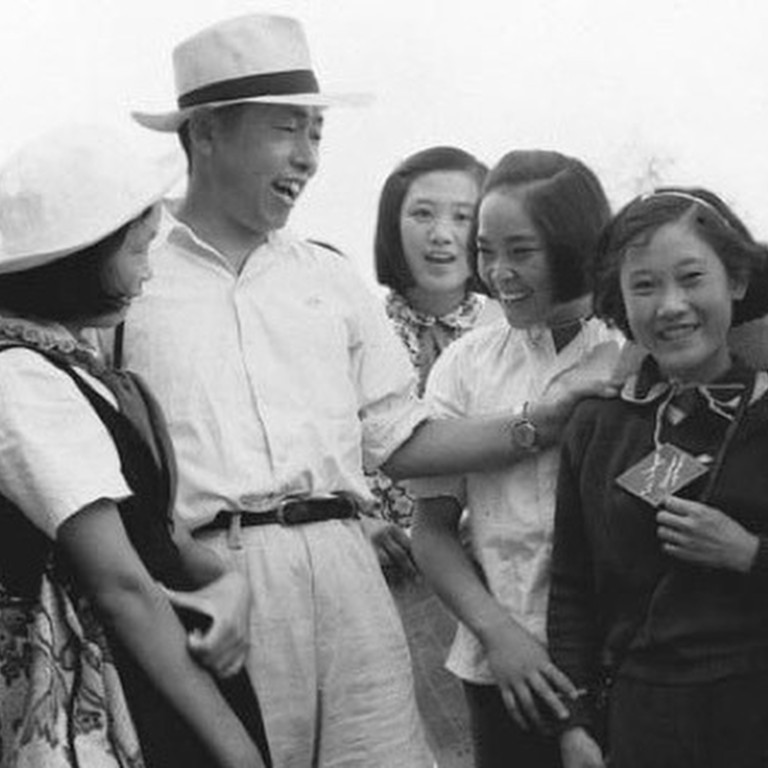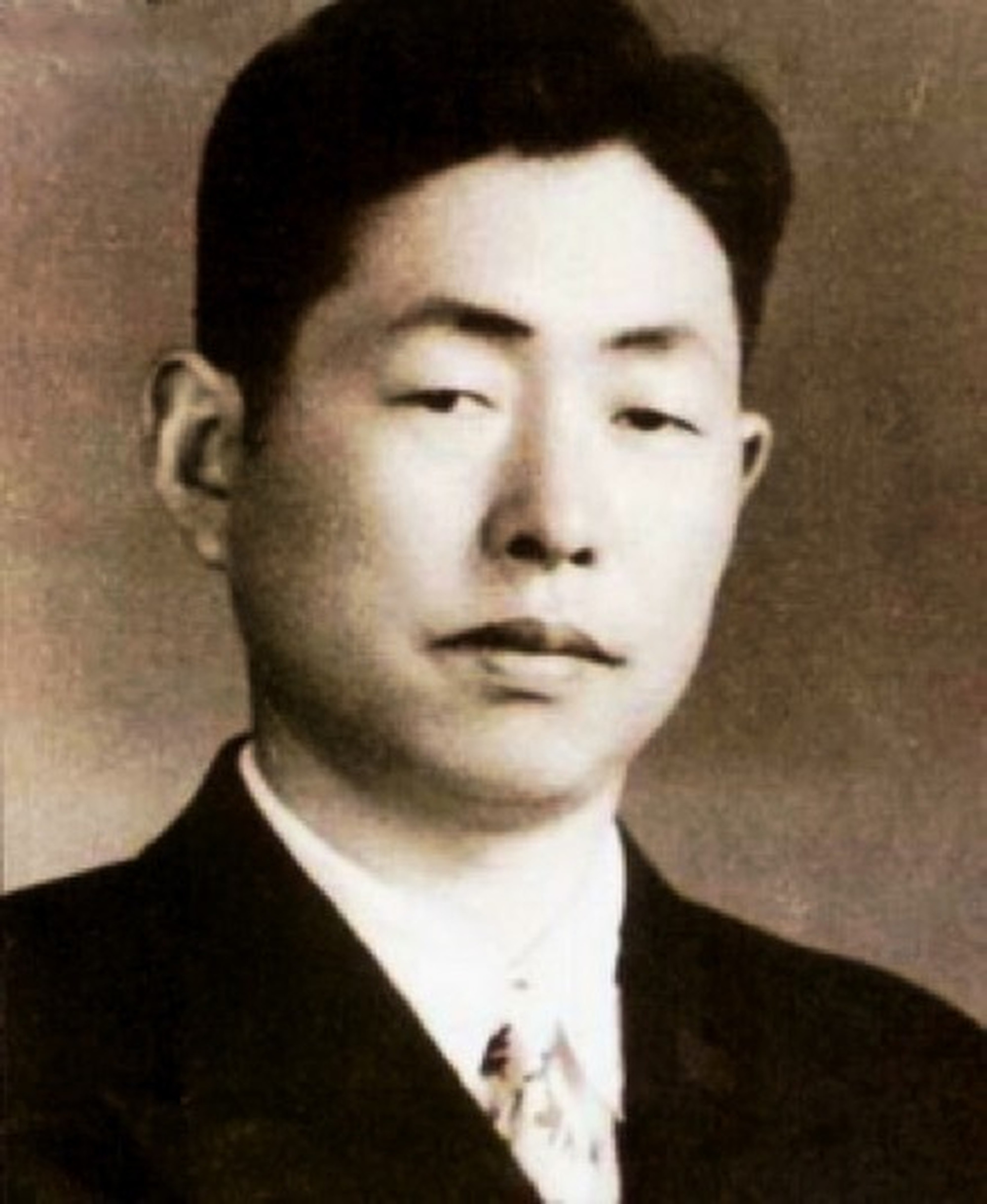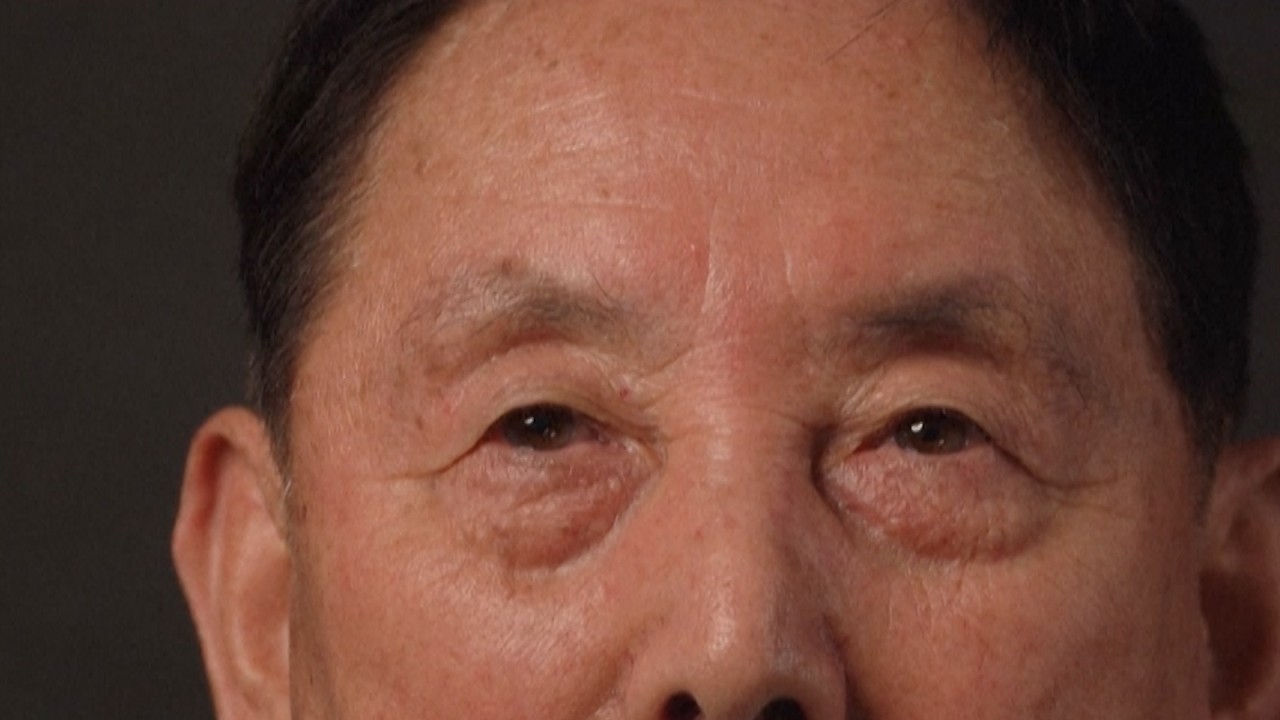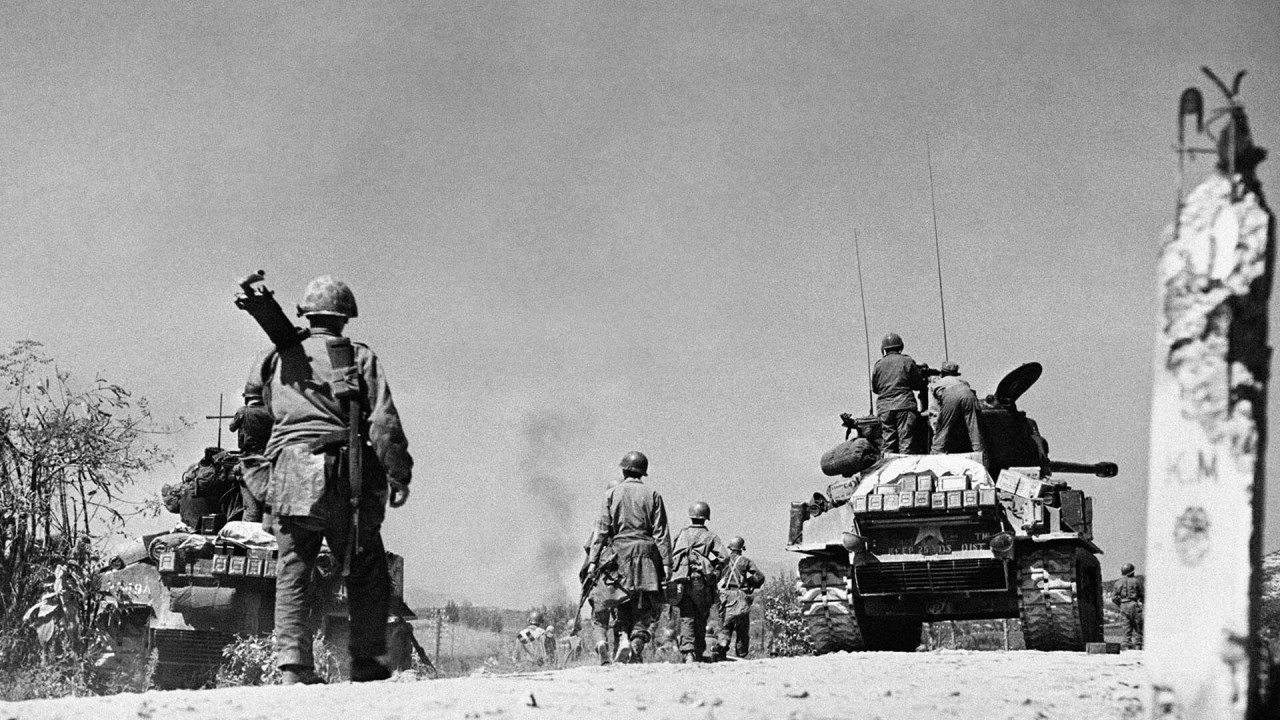
South Korean memorial to draw Chinese tourists sparks controversy for lionising Korean-born composer of PLA anthem
- The city of Gwangju has proposed building a park as a memorial to Korean-born Zheng Lucheng but critics seek to stop the plan
- ‘According to that logic, if you want to attract Russian tourists, you have to build Stalin Park,’ says Seoul’s minister of patriots and veterans affairs

Park Min-shik, South Korean Minister of Patriots and Veterans Affairs, made a post on Facebook on Tuesday criticising the plan, saying it “denies the spirit of the constitution” to commemorate someone who “led the way to tear down liberal democratic Korea”.
“When the tragedy of the Korean war broke out, he organised a war consolation performance group and comforted the Chinese army. Not only that, but he abandoned his nationality and became a Chinese citizen, writing songs for the Chinese Communist Party and ending his life as a Chinese,” Park said.
“As the minister of patriots and veterans affairs, I express strong concern over the plan [by] Gwangju to commemorate the person who took the lead in overthrowing a free Republic of Korea with taxpayers’ money. It should be completely withdrawn.”
Zheng’s history as a musician for the Chinese and North Korean army that fought against South Korea during the Korean war is controversial in South Korean politics. The ruling conservative People Power Party issued a statement calling for an immediate halt to construction of the memorial park commemorating the “communist military cheerleader”.
Kang Gi-jung, the mayor of Gwangju and a member of the opposition Democratic Party, countered that the city “neither regards Zheng as a hero nor does it disparage him,” and said Zheng was a symbol of friendship between South Korea and China which would help attract more Chinese tourists.
“In the eyes of Gwangju, he is an outstanding musician,” Kang said, while also describing the musician’s personal pain as in keeping with a period when Korea was occupied by Japan.
“Thanks to his achievements … many Chinese tourists visit Gwangju. We will discover and invest in Zheng as a historical and cultural resource of the city.”
The Korean war (1950-53) - a visual explainer
Zheng, who is also known by his Korean name Jeong Yul-seong, is considered one of the greatest modern composers of military songs in China. In 2009, he was named one of the “100 heroes and model figures who made outstanding contributions to the founding of new China” by the Chinese government for the celebration of the 60th anniversary of China.
Chinese President Xi Jinping, during his speech at Seoul National University in 2014, also mentioned Zheng’s name as one of the examples of the people who supported the “friendly exchanges” between the two countries.
Zheng was an anti-Japanese resistance activist who is known to have been involved in the Korean independence movement in China, where he studied music.
In 1939, he joined the Chinese Communist Party and composed military songs for the PLA. He returned to Korea – in North Korea – after it gained independence from Japan in 1945, where he taught music and worked as chief of the North Korean army band, writing its military anthems.
After the outbreak of the Korean war in 1950, Zheng returned to China following a request from then-Chinese premier Zhou Enlai and obtained Chinese citizenship to organise music consolation groups for the Chinese military sent to fight against South Korea and the allied forces.
Zheng died in 1976 and was buried in Babaoshan Revolutionary Cemetery, a main resting place for the highest ranking government figures in Beijing.
He is best known for composing military songs and marches in China and North Korea. In addition to the PLA song, he is known for writing “Ode to Yanan”, “March of the Korean People’s Army” and “Tumen River”.
The Jeong Yul-seong memorial society issued a statement on Thursday saying it was “not helpful” for the memorial construction to be stopped suddenly, and it was inappropriate to have an “excessive ideological dispute”.
However, Park said of mayor Kang’s remark that seeking to draw Chinese tourists was a “poor excuse” for building the memorial park. The minister told Channel A on Wednesday he was considering filing a constitutional appeal to stop construction.
“According to that logic, if you want to attract Russian tourists, you have to build Stalin Park, and if you want to attract Japanese tourists, you have to build Japanese Emperor Park,” Park said.
“It makes no sense. Money is important, but national identity is a value that we cannot concede, so I don’t think we can justify it by attracting tourists.”
China and North Korea reaffirm close ties amid armistice anniversary
South Korea’s patriotism and veterans affairs ministry considered conferring a posthumous honour on Zheng in 2018 after former president Moon Jae-in visited China in 2017.
But it was rejected because of the composer’s support for China and North Korea during the Korean war and after an investigation declared there was uncertainty around his purported work for the Korean independence movement.



